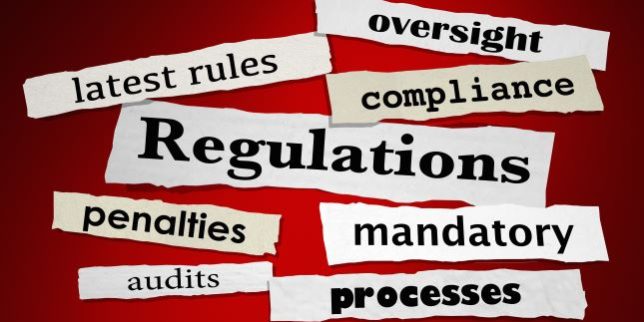The Department of Labor (DOL) issues regulations and oversees workplace safety through OSHA, wage laws through the Wage & Hour Division, regulates federal contractors subject to the Service Contract Act, regulates Labor Unions, and much much more. The nominee to lead this important agency, and his potential agenda, should be on the radar of every employer.
DOL’s New Leader
Fulfilling a campaign promise to “be the strongest labor president you have ever had.” President Joe Biden has taken large strides towards that goal in his nomination of Boston Mayor, Marty Walsh to lead the Department of Labor (DOL). Described as a “old-fashioned labor Democrat” by those who closely observed his career, the former Big Labor leader is likely to aggressively remake U.S. labor policy.
As the largest employment regulation agency in the U.S. the DOL wields tremendous power over the method and manner that large and small businesses alike function. Democrats hold the Senate majority. Walsh’s confirmation is almost assured. The time to prepare is now.
DOL’s New Agenda (Potentially)
As an old-fashioned labor Democrat, predictions of Walsh’s agenda are fairly straight-forward. Here are likely scenarios we may see from the DOL under Walsh’s leadership.
Increased Workplace Safety Regulation and Intervention
Reeling from the impact of the Covid-19 pandemic, businesses have been focused as never before on worker safety. However, unlike the Trump administration’s use of the Occupational Safety & Health Administration (OSHA) General Duty Clause for Covid safety enforcement, it is likely Walsh will implement Covid-specific safety regulations further burdening already troubled businesses attempting to remain open during a pandemic.
Wages
There are several areas in which Walsh is likely to change the regulatory landscape regarding wages. He almost certainly will champion the push to raise the minimum wage to $15/hour, but that is only the tip of the wage iceberg. Walsh was heavily involved in the Massachusetts overhaul of pay equity laws designed to close the gender pay gap. The Department will likely target the changes made by the last administration on the application of the tip credit and fluctuating workweek as they pertain to the FLSA’s minimum wage and overtime requirements. Finally, the Department will ramp up enforcement efforts by the Wage & Hour Division. Last July, the DOL announced that it would not seek liquidated damages against employers in wage and hour investigations as a matter of course. It is almost certain that Walsh will rescind this practice.
Federal Contractor Rules
There is likely to be increased scrutiny on the employment practices of federal contractors, especially those performing work under the Service Contract Act (SCA). Federal contractors will see a renewed focus on diversity, equity, and inclusion with stiff penalties for failure to meet the DOL’s criteria including loss of the ability to contract with the government. Federal contractors are also likely to see a reissuance of the Obama-era rule restricting the right of companies with a “history” (a term very loosely applied) of labor violations to bid on any future federal contracting opportunities.
Independent Contractor Status
Long a target of progressives, the gig-economy will be squarely in the sights of Walsh’s Department. A new rule finalized in the waning days of the Trump administration aimed to make it easier for businesses to classify workers as independent contractors. The rule was designed to nurture the gig business model and encourage new business innovation and growth. In a clear sign of disagreement with the policy implications of the rule, President Biden in his first few days in office already halted its implementation which was slated for March 8, 2021.
Employee Leave
There were several indications during campaign stump speeches by President Biden and Vice President Harris that expansion of employee leave lurks in their agenda. Of course, during a pandemic these items were not front and center, but an observant listener could easily detect the policy proposals. Paid maternity leave, paid FMLA (as opposed to the currently unpaid federal right), and mandatory paid sick leave were all mentioned by one or both of the President and Vice President.
But where does Walsh stand on these issues? He made clear, at least in part, where he stands in an opinion peace he authored in 2015 in the Boston Globe titled Paid parental leave is a must for working families.
What Must an Employer Do?
There are three things every employer must do now to prepare for these inevitabilities.
- Assess- Keep a close eye on the news. The state of most newscasts are hollow shells of the past. You will not get in-depth policy through traditional news, so seek other sources. NLRA will monitor regulatory developments and alert its database regularly through releases and our Blog.
- Ask – No one expects a business leader to be an expert in everything – so don’t try to be! Ask an expert. Find a reputable consulting firm, ask your business attorney, but seek the guidance and resources only an expert can provide.
- Act – Do not react, be proactive. The pressure from the progressives is going to be tremendous to get these reforms in place as quickly as possible. Speak to your advisors, make a plan, and implement the plan to lessen any potential impacts on your operation.
If you don’t know where to start let’s talk: Schedule a Free Consultation.








